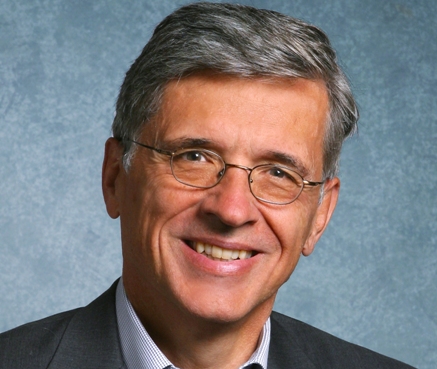FCC Launches Open Internet Rules
The smarter way to stay on top of the multichannel video marketplace. Sign up below.
You are now subscribed
Your newsletter sign-up was successful

With occasional interruptions from protestors in the room, the Federal Communications Commission voted Thursday on proposed new rules that would use Section 706 authority to revive open Internet rules.
The vote was two for (chairman Tom Wheeler and commissioner Mignon Clyburn), two against (Republican commissioners Ajit Pai and Michael O'Rielly) and Democrat Jessica Rosenworcel concurring.
Wheeler made it clear the vote on the rule proposal was the beginning of a process, and that it was in response to a court remand and an effort to restore legally sustainable rules.
He also said nothing in the proposed new rules necessarily allows paid priority.
While it was take two, it was not Title II, though the FCC will ask whether and how to reclassify if it concludes that is the better way to go. Wheeler said Title II was still on the table.
The new rules have six basic elements.
- To preserve the basic scope of the commission’s 2010 approach, which applied primarily to wired broadband, while asking whether wireless should be included.
- To expand the transparency requirement so that ISPs will have to provide more info about how they manage their networks.
- To use the same no-blocking rule, with a clarification that broadband providers will have to provide edge providers a minimum level of service.
- To set an enforceable legal standard for determining commercially reasonable practices covering conduct that is not prohibited, there will be an enforceable legal standard.
- To create a multifaceted dispute resolution process.
- To rely on Section 706 authority.
The FCC will also create an "ombudsperson" to vet complaints about lack of openness.
The smarter way to stay on top of the multichannel video marketplace. Sign up below.
Wheeler made clear that the vote was on a proposal, not final rules, and that Title II was very much in the conversation.
The item asks how Title II could be applied and the pros and cons of that approach.
Wheeler spoke at length about how the rules did not necessarily allow paid priority, and that he would do all in his power to prevent fast and slow lanes on the Internet. "This proposal does not provide or mandate paid prioritization," Wheeler told reporters after the meeting. "Nothing in this [item] authorizes a fast lane. We ask questions, but do not jump to conclusions."
He repeated his warning to cable operators that they had the incentive and opportunity to discriminate, adding that as an entrepreneur he had had products and services excluded from "closed cable systems," though he did not provide any examples.
He said the vote was another step in the process of protecting Internet openness, but an important one to take now since there are currently no rules to prevent ISPs from degrading and blocking. “There is one Internet,” said Wheeler, “It must be fast, robust and open. “
Commissioner Clyburn said she would have preferred a different approach, but echoed Wheeler that this was the beginning, not ending, of the process.
Commissioners Pai and O'Rielly provided strong dissents, while Rosenworcel was muted in her comments that while she strongly supported an open Internet, the vote was "too rushed to be fair."
Contributing editor John Eggerton has been an editor and/or writer on media regulation, legislation and policy for over four decades, including covering the FCC, FTC, Congress, the major media trade associations, and the federal courts. In addition to Multichannel News and Broadcasting + Cable, his work has appeared in Radio World, TV Technology, TV Fax, This Week in Consumer Electronics, Variety and the Encyclopedia Britannica.

